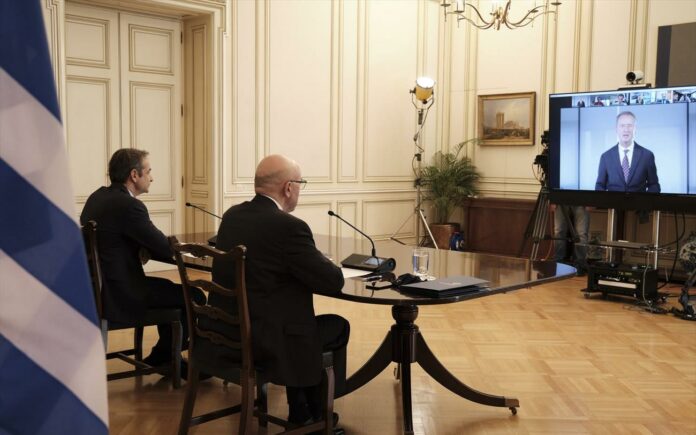A project billed as ground-breaking in terms of “green investments” in Greece moved forward on Wednesday with the signing of an MoU between the Greek government and Volkswagen AG to transform the Dodecanese island of Astypalaia into a more environmentally-friendly model community.
The project calls for electric vehicles, promotion and use of renewable energy sources and state-of-the-art driver-less mass transit, in what VW pledges will be a climate-neutral mobility model.
The proposed plan features incentives for trading in conventional vehicles for electric ones, with the target being 1,000 electric vehicles for roughly 1,500 internal combustion vehicles on the isle today.
Additionally, public vehicles on the island – police cars, ambulances, municipal units – will be replaced with electric counterparts, with the assistance of VW Group.
Other highlights include the building of an island-wide network of charging stations, public transport requested via digital apps, and two-wheel e-mopeds.
The Greek state will be obliged to ensure the existence of high-quality road infrastructure – a challenge even on the most developed isles – excellent road sign coverage and sufficient data concerning traffic and weather conditions – the latter being prerequisites for driver-less transportation.
Astypalaia, among the less frequented Dodecanese islands with an all-year local population of approximately 1,300, is roughly 100 square kilometers in size. The annual number of visitors is given as 72,000, low compared to other better-known Greek island destinations in the Aegean.
At present only two buses offer public transportation, and then only in a small area of the island.
The island’s energy needs are covered exclusively from the use of fossil fuels.
Greek Prime Minister Kyriakos Mitsotakis participate via a conference call in Wednesday morning’s event, with the German auto giant represented by the chairman of its governing board, Herbert Diess.
VW’s official Twitter feed used the hashtag #ShapingMobility in promoting the event.














